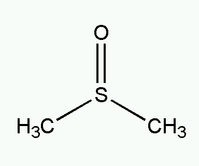I suffer from migraine headaches and am curious to know if it has anything to do with my diet. Do certain foods cause migraines--what in them would trigger migraines?
answer
Many factors are involved in bringing on migraines, including genetics, diet, food allergies, stress, hormonal imbalances and fatigue. Diet and food allergies are suspected to be a culprit about 30 percent of the time.
Since improper circulation underpins migraines, try to increase your intake of omega-3 fats since they help prevent excess stickiness of platelets and work well as natural blood thinners.
Also, evaluate to see if certain foods trigger your migraine, particularly chocolate, milk, nuts, "cured" meats, hot dogs, aged cheese, fermented, pickled or marinated foods and cola drinks. Very cold foods can sometimes trigger headaches. Hypoglycemia can also trigger migraines, so eat small, frequent meals throughout the day. Finally, eliminate specific chemicals that may trigger migraines, such as tyramine (found in aged cheese and vinegar), phenylalanine, alcoholic drinks such as red wine, beer or whisky, food additives (sodium nitrate, monosodium glutamate [MSG], aspartame) and caffeine. Avoid MSG and use stevia instead of Nutrasweet (brand of aspartame).
I have had runner's knee throughout the past year, could it be chronic? I've tried to tone down my exercises; is there anything else I can do?
answer
Runner's knee refers to the softening of the cartilage of the knee cap and is caused when the kneecap does not track smoothly in its femoral groove (at the thigh bone). The symptoms of this include pain near the knee cap, usually felt after sitting, running/ walking downhill and during other bent-knee exercises. The pain increases gradually over a period of time, often a year or longer.
When recovering, avoid exercise that puts weight on a bent knee, especially downhill walking or running -- try swimming as an alternative. Always rest if there is pain and swelling. Use ice treatment for 15 minutes twice daily after activity to reduce pain and inflammation.
Small doses of aspirin, naproxen, or ibuprofen work well as anti-inflammatory agents, but for long term treatment, stretching and strengthening exercises for the quadriceps, hamstrings and calves is helpful; try straight-knee leg lifts.
Orthotic devices to correct abnormal foot mechanics may also help, as does exercising on soft surfaces. Glucosamine and chondroiton supplements may help; also keeping a balanced diet, with plenty of protein will help.
I heard of athletes taking MSM, and, also that it is good against arthritis. Can it be taken to prevent athletic injury, as well?
answer
Methylsulfonylmethane (MSM) is an odorless breakdown product of dimethyl sulfoxide (DMSO). It is available in capsules and tablets, and for application to the skin in a lotion, cream, or gel.
There are few peer-reviewed, double-blind studies on MSM published in mainstream scientific journals and none in which MSM was tested against any human ailment. Researchers have accumulated knowledge through their own unpublished experiences and clinical evaluations. Anecdotal reports by people who have taken MSM say that this nutrient helps certain people with arthritis, but in my opinion, there is much more research done with glucosamine and chondroitin. I seriously doubt, however, that MSM can prevent athletic injuries since the majority of these injuries are due to excessive mechanical stresses on joints, ligaments, and muscles and not due to a deficiency of a particular nutrient.
Ray Sahelian is the author of the newly published Mind Boosters: A Guide to Natural Supplements That Enhance Your Mind, Memory, and Mood (St. Martin's Press, 2000). See www.raysahelian.com, or write to him in care of Better Nutrition magazine, Sabot Publishing, 9 Riverbend Drive, South, Stamford CT 06907. He cannot answer questions by mail or telephone. "Ask the Experts" is intended for educational purposes only. If you have a medical problem, consult your physician.
COPYRIGHT 2001 PRIMEDIA Intertec, a PRIMEDIA Company. All Rights Reserved.
COPYRIGHT 2001 Gale Group



